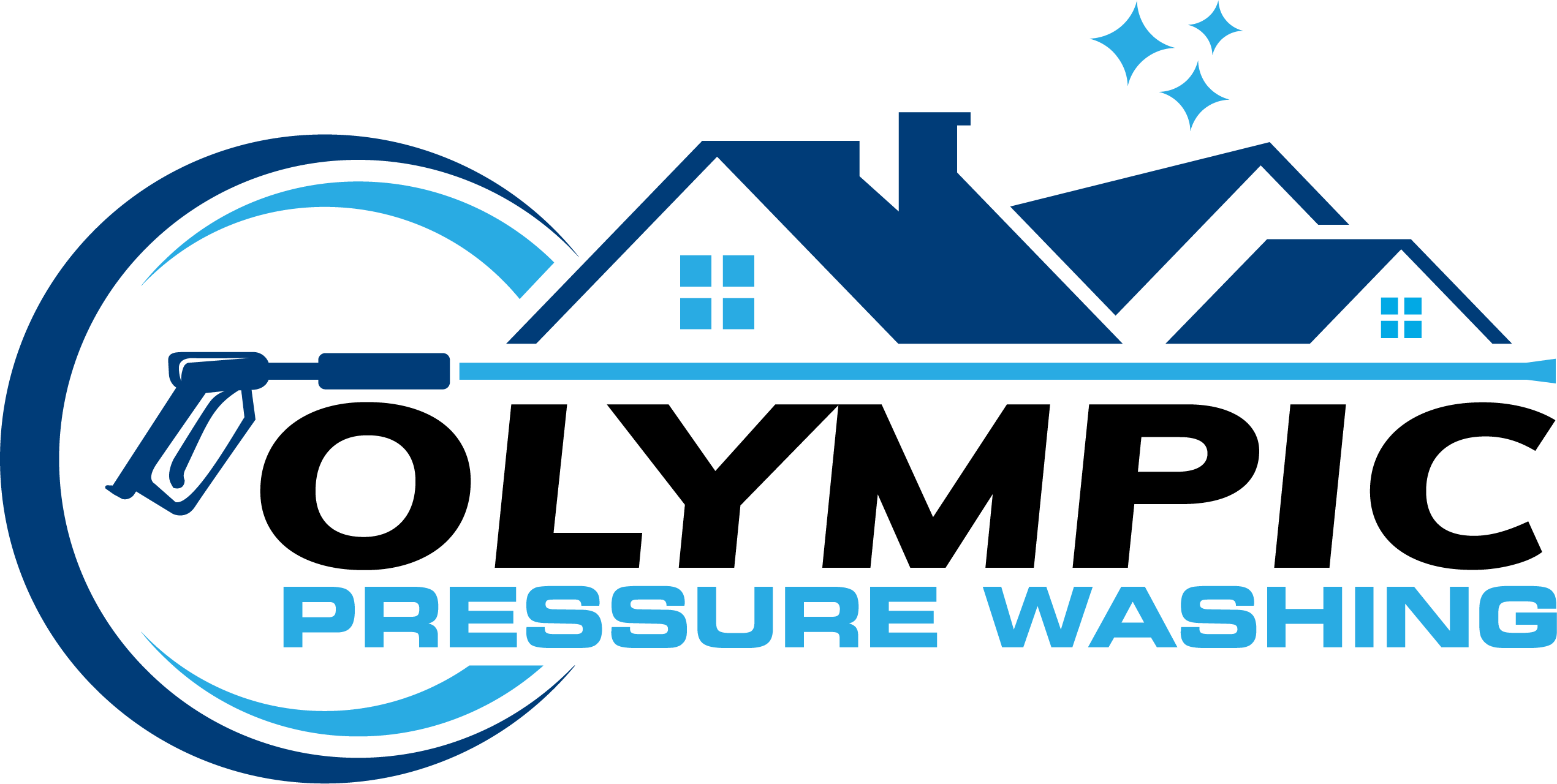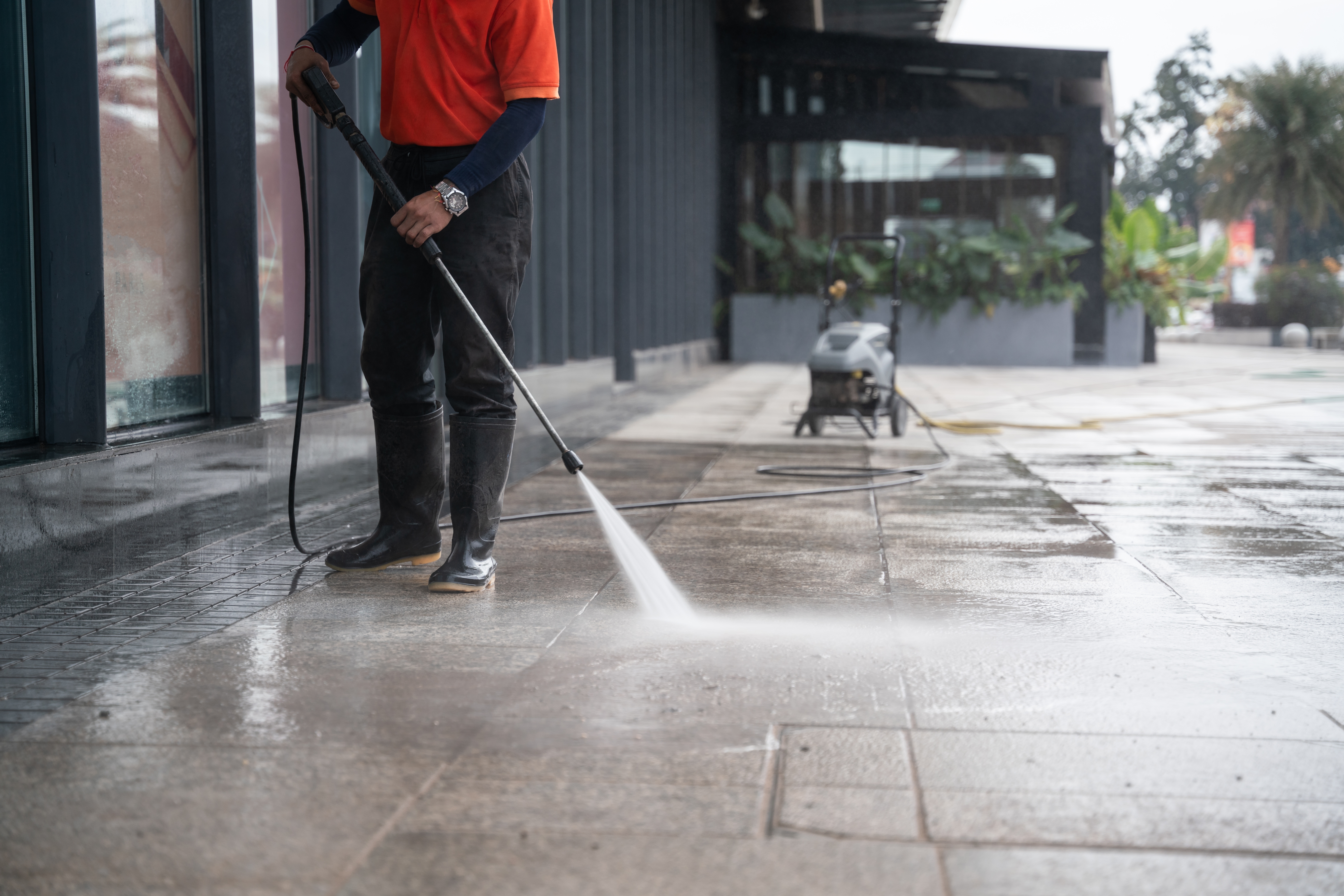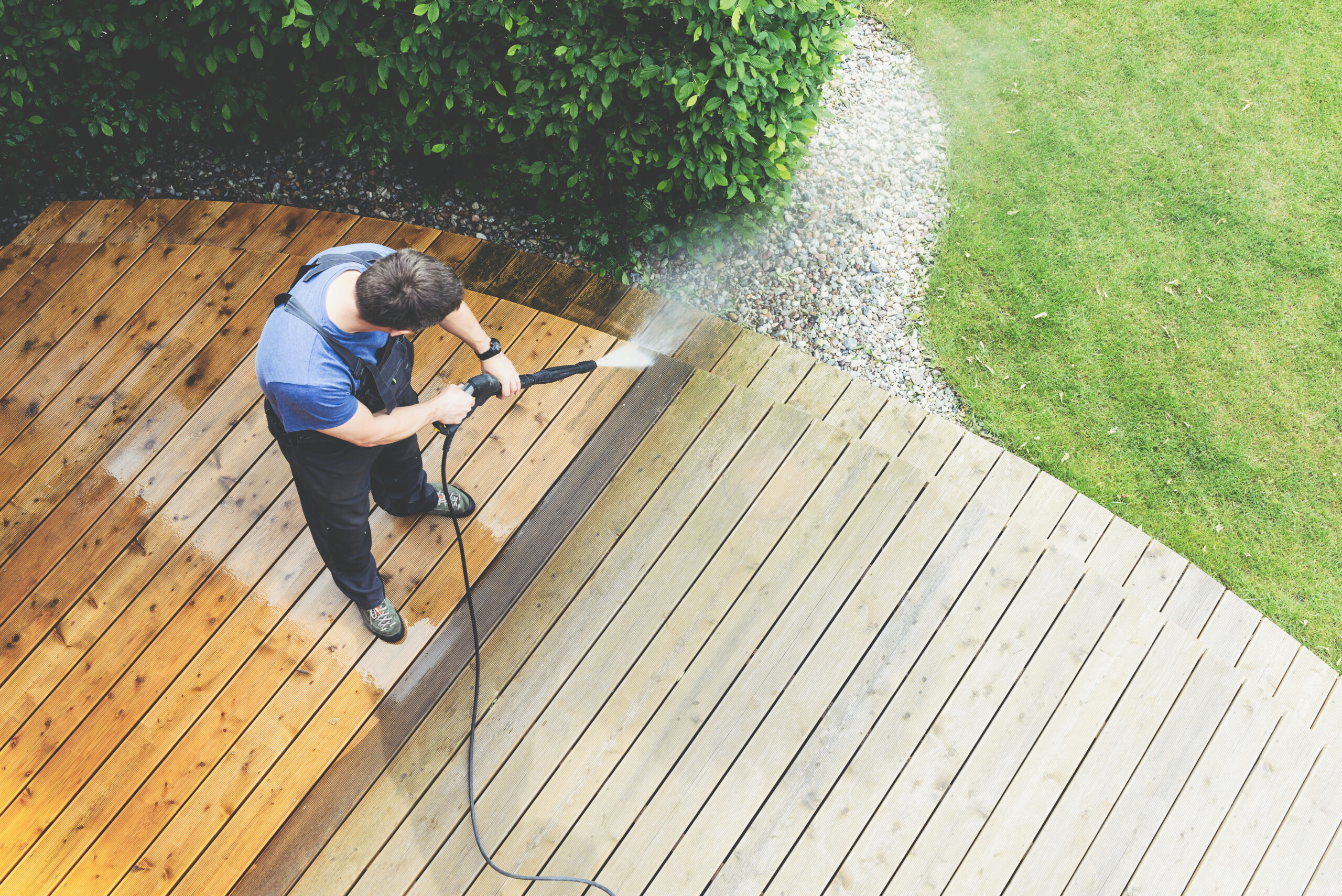Frequently asked questions.
What’s the difference between pressure washing, soft washing, and hot washing? We’ll tell you!
Soft washing is a cleaning method that uses low pressure combined with specialized cleaning solutions to safely remove dirt, mildew, mold, algae, and other organic stains from exterior surfaces. Unlike traditional pressure washing, which relies on high-pressure water to blast away grime, soft washing is gentler and ideal for delicate surfaces like:
- Roofs (especially asphalt shingles)
- Vinyl siding
- Wood paneling or decks
- Stucco
- Painted surfaces
Key Features of Soft Washing:
- Low Pressure: Soft washing uses much lower water pressure than standard pressure washing, reducing the risk of damage to surfaces.
- Cleaning Solutions: Biodegradable detergents are used to break down dirt and contaminants, which are then rinsed away with water.
- Longer-Lasting Results: Since soft washing removes the root cause of stains (e.g., algae and mold), surfaces stay cleaner for longer compared to pressure washing.
Soft washing is particularly beneficial for cleaning surfaces that may be damaged by the high pressure of traditional pressure washing, ensuring effective cleaning without compromising the integrity of the material.
Pressure washing is not safe for all surfaces, as certain materials can be damaged by high water pressure. The safety of pressure washing depends on both the surface material and the pressure level used.
Surfaces Safe for Pressure Washing:
- Concrete: Driveways, sidewalks, and patios can handle high pressure.
- Bricks and Stone: These are durable and can be safely pressure washed, though mortar joints should be treated carefully.
- Metal Fences: Pressure washing is generally safe on metal surfaces like fences and railings.
- Vinyl Siding: Can be cleaned with moderate pressure, though soft washing is preferred to avoid damage.
Surfaces that Require Caution or Soft Washing:
- Wood: Wood decks and fences can be damaged by high pressure, causing splintering. Low-pressure or soft washing is recommended.
- Asphalt Shingles: High pressure can strip away the protective granules on shingles, leading to roof damage. Soft washing is ideal.
- Painted Surfaces: High pressure can peel paint off walls and fences. Soft washing or a low-pressure setting should be used.
- Stucco and Delicate Siding: These materials are prone to cracking or chipping under high pressure, so soft washing is safer.
In residential pressure washing, the types of chemicals and detergents used depend on the surfaces being cleaned and the stains being addressed. Here are some common products used in residential pressure washing:
1. Sodium Hypochlorite (Bleach)
- Widely used in soft washing for cleaning roofs, siding, and decks. It’s effective in killing mold, mildew, and algae, making it a popular choice for home exteriors.
2. Surfactants
- Surfactants (detergents) are often added to pressure washing solutions to break down dirt, grease, and grime. These are mild and safe for most surfaces, such as siding, driveways, and patios. They also help bleach and other chemicals spread more evenly on the surface.
3. Citric Acid
- Often used to remove stains and brighten surfaces like concrete, brick, and wood. It’s an eco-friendly option compared to stronger chemicals and is commonly used for rust or mineral deposit removal.
4. Oxalic Acid
- Primarily used to clean and brighten wood surfaces such as decks and fences. It’s effective in removing rust stains and restoring the natural color of wood.
5. Vinegar
- For a more eco-friendly approach, vinegar is sometimes used for cleaning small residential areas like patios or outdoor furniture. It’s effective at breaking down dirt and mold on delicate surfaces.
6. Sodium Hydroxide
- Also known as caustic soda, it is used to clean greasy or oily surfaces like driveways and garage floors. However, it’s typically used in more industrial settings or for tougher residential stains.
7. Biodegradable Detergents
- Environmentally friendly detergents are often used in residential settings to avoid harming plants and wildlife. These are designed to clean effectively without leaving toxic residues.
8. Enzyme-based Cleaners
- Some residential pressure washing companies use enzyme-based cleaners, which are particularly effective for breaking down organic matter like mold and algae on siding or decks.
Using the right chemical or detergent is essential to avoid damage, especially on delicate surfaces like wood or painted areas. It’s also important to use eco-friendly products to protect plants and landscaping around residential homes.
18+
Years of experience
100’s
of satisfied customers
120
tons of grime removed…probably
2k+
Projects done


